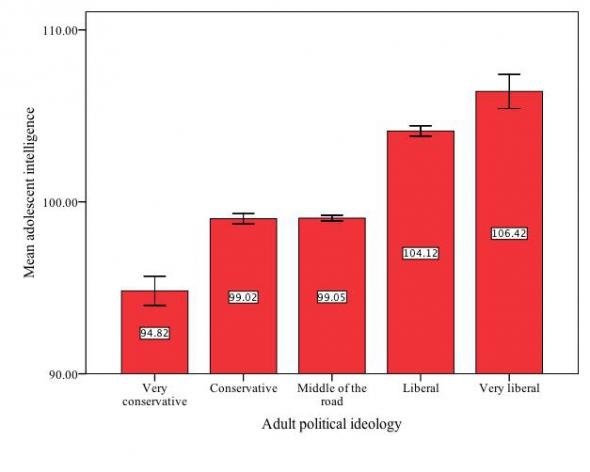Introduction
Different forms of governments are based on different ideologies. The ideologies are important as they shape the political, social and economic structures that are important in governance. These ideologies may be different but in some cases they intertwine in order to achieve good governance.
According to Mullins (1972), political ideology refers to a collective program that deals with actions which are focused on maintaining, altering or bringing forth a positive transformation in a society. Important to note is that positive transformation varies from one society to another. It is said to be collective because it comprises of beliefs, values and morals of that particular society (Hamilton, 1987).
Form of Government
Ideology forms the core values of what a government wants to achieve. It forms the underlying principle against which policies and laws shall be formed. Most ideologies concepts are based on the social contract theory. This theory states that a government’s political legitimacy is derived from a social contract between the people and the ruling class.
Social contract theory allows the citizen to cede their rights to the ruling class in exchange for the protection by the same. The political structures that shall be put in place are those which will promote the political ideologies.

Economic Policy
Political ideologies normally govern the economic shape of a country. The conservatives are normally concerned with the individuality of the economic rights (Ethridge & Handelman, 2010). This is concerned mainly with pursuing personal wealth and happiness.
It is therefore, characterized by rights such as the right to amass and hold personal wealth; the right to dispose personal wealth without any interference from the government (Brown & Mobarak, 2009). Free trade and commercial transaction is one of the core economic factors in this ideology. Liberalists are in support of opening the markets and leaving the market forces determine how the market is to be conducted (Cherry, 2008).
Nationalism and Internationalism
In socialism and democratic governance there is the feeling of nationhood. In fact when elections are conducted to elect leaders, it is always taken that these leaders are representatives of the rest of the citizens (North, 1990). In social matters, the conservatives are described as pro-life while the liberalists are described as pro-choice. Pro-lifers are against abortion while the pro-choice believe that one has their own right to decide.
Civil Liberties/Political and Socioeconomic Rights
Ideologies are responsible in forming creating different structures in terms of social stratifications and classes (Carbonell, 1978). For instance, in democratic institutions each person is deemed to be equal with each other. That is the reason why there is one man one vote during the election time (Barrington, 1967). In aristocratic institutions the ruling class is always deemed to be of a higher social stratus as compared to the other citizens.
In liberal ideology there is emphasis on individual rights and equality (Hunt, 1990). There is a strong defence of individual or some minority groups whose rights are likely to be jeopardized. The minority are included and made to participate in different government affairs (Rueschemeyer, 1992).
This is characterized by legislating laws that seek to protect the minority rights such as those that protect homosexuals, racial minorities etc. Democratic ideologies are emphatic on the pleasure of a majority. When the majority is happy then democracy is achieved. This forms the basis of democratic practices such as voting.
Conclusion
Different countries have different ideologies. This stems from the fact that these ideologies are influenced by different factor. Some of the factors include political history and experience, the economic structure and the form of government in question. It is also possible to have a hybrid of ideologies. This is usually driven regular reform and review of the existing policies and legal frameworks.
References
Barrington. M. (1967). Social Origins of Dictatorship and Democracy: Lords and Peasants in the Making of the Modern World. Boston: Beacon Press.
Brown, D.S. & Mobarak, A.M. (2009). The Transforming Power of Democracy: Regime
Type and the Distribution of Electricity. American Political Science Review, 103 (1), 193–213.
Carbonell, J.G., Jr. (1978). Politics: automated ideological reasoning. Cognitive Science, 2(1), 27-51.
Cherry, K.M (2008). Aristotle and the Eleatic Stranger on the Nature and Purpose of Political Life. American Journal of Political Science, 52 (1), 1–15.
Ethridge, M.E & Handelman, H. (2010). Politics in a Changing World; An introduction to comparative political Science 6th. Canada: Cengage.
Hamilton, M.B. (1987). The elements of the concept of ideology. Political Studies, 35(1), 18-38.
Hunt, M.H. (1990). Ideology. Journal of American History, 77(1), 108-15.
Mullins, W.A. (1972). On the concept of ideology in political science. American Political Science R, 66(2), 498-510.
North, D.C. (1990). Institutions, Institutional Change and Economic Performance. Cambridge: Cambridge University Press.
Rueschemeyer, D., Stephens, E. H. & Stephens, J. (1992). Capitalist Development and Democracy. Chicago: University of Chicago Press.